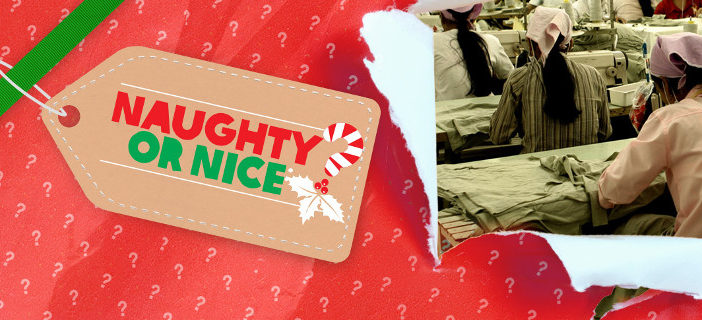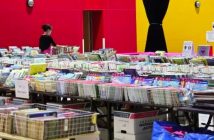Three of Beijing’s favorite clothing retailers have been put on the “naughty list” by Oxfam Australia when it comes to ethical manufacturing.
The charity has been publishing the list since 2013, and it doesn’t necessarily mean that Uniqlo, Zara or Topshop use factories with unsafe conditions or child labor. However, because they refuse to release details of where their clothes are made, it’s impossible to be sure that they are ethically sourced. Zara’s parent company Inditex recently took the step of publishing details of the dyeing mills they use, but remain on the naughty list because they still keep their manufacturing locations secret.
The “naughty and nice lists” are a lighthearted way of getting consumers to think about ethical shopping at Christmas, and to put pressure on multinational companies. However standards in clothing manufacture are a serious matter. In 2013 over a thousand people died when a building housing garment workshops collapsed, bringing the attention of the world to the difficult and sometimes dangerous conditions in which our clothes are made.
China has strict laws against employing anybody under the age of 16. The government does not release any data on the subject, but the consensus of international observers is that huge strides have been made and the problem of child labor almost eradicated. Where it does still occur it’s usually in companies making hi-tech products for the western market.
However a recent report described children running around a clothing factory which has passed multiple inspections, some of the kids helping their parents with their work. The children weren’t employed there, but had nowhere else to go during the summer vacation. The manager of the factory defended the practice: “It’s better than just locking them up in the dorm room or letting them run around outside with no one to look after them.”
This might be seen as shocking, but in fact the alternative for many of the children, some as young as 4, is being locked inside apartments or wandering the streets on their own for hours at a time. The Center for Child Rights and Corporate Social Responsibility (CCR CSR) responded with a positive initiative, piloting Factory Child Friendly Spaces (FCFSs) at six Chinese factories this summer.
The initiative has been hailed as a success, with factories reporting that money saved by improved retention of staff more than justifies the costs of the facilities. It’s a reminder though that, while China has made impressive progress with eliminating child labor, the issue of childcare for working families remains a tricky one. And Oxfam hopes we will remember too, when shopping for the holidays, to make sure that someone else’s child wasn’t missing school to make the gifts our own will open this Christmas.




